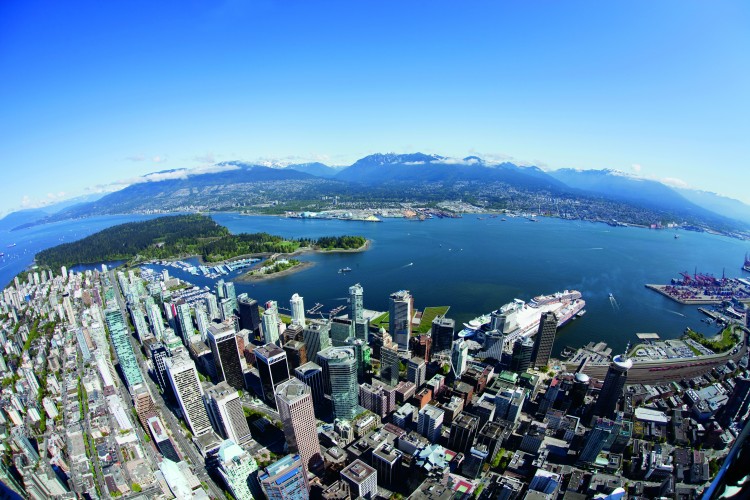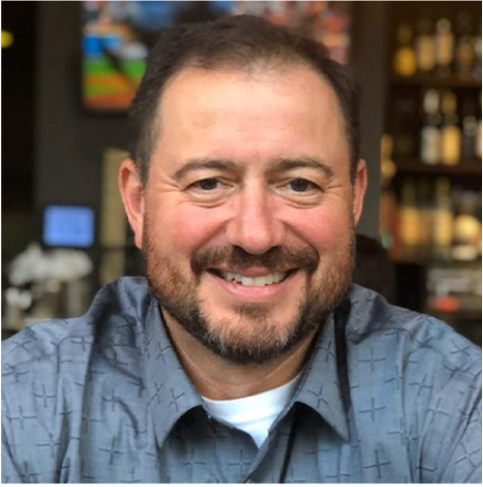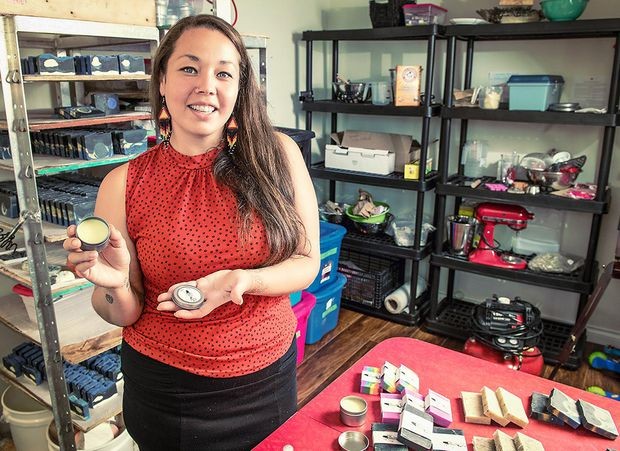
Creating economic opportunity through Indigenous partnerships

Forming business partnerships between Indigenous and non-Indigenous people throughout Canada can fuel a new and powerful economy. That was the message conveyed at a recent event on Indigenous investing and governance, organized by the Dhillon Centre for Ethical Business and Ch’nook Indigenous Business Education at UBC Sauder School of Business.
The guest speaker, Mark Sevestre, spoke to an online audience from the UBC community and beyond, and answered questions posed by UBC Sauder Bachelor of Commerce students.
“There are so many examples of entrepreneurship within our communities,” said Sevestre, a member of the Mohawk First Nation who lives at the Six Nations of the Grand River in Ontario, the largest First Nations reserve in the country.
“If businesses in Canada actually engage with us, it represents an incredible economic opportunity for everyone.”

Financial expert Mark Sevestre spoke to UBC Sauder BCom students about investing and corporate governance through an Indigenous, values-based lens.
Sevestre explained how Indigenous communities are incorporating traditional values into their investment strategies. According to Christie Stephenson, Executive Director of the Dhillon Centre, there is much to learn from ethical business and investment models.
“It’s clear that the acknowledgement of Indigenous rights is becoming an imperative in investing and that non-Indigenous investors have an opportunity to allocate capital in ways that support reconciliation,” says Stephenson.
Teaching Indigenous ways to investors
Speaking with business students is something Sevestre enjoys in his capacity as an Indigenous investment expert. A Bachelor of Commerce graduate from Mount Allison University in New Brunswick, Sevestre worked for the Bank of Montreal early in his career. The experience would serve him well later in life when he began speaking with Canadian banks, investors and corporations about the value and imperative of Indigenous consultation and business partnership.
“Early on when the federal government was settling land claims, one of the requirements was that funds obtained from business activities and claims settlements had to be set up in a trust,” said Sevestre. “But many of these trusts were incredibly restrictive and a lot of communities were not dealing with the right investment professionals.”
Today, in his dual role as General Manager of the Mississaugas of the Credit First Nation Community Trust and Senior Advisor with the National Aboriginal Trust Officers Association (NATOA), Sevestre is both educator and advocate for greater Indigenous participation in the Canadian economy.
“We’re trying to articulate Indigenous cultural values and articulate them in such a way that an investment manager can make the right investment decisions on the community’s behalf,” he explains.
“Then we also work with non-Indigenous investors so they understand the role of reconciliation and invest their funds in a way that is beneficial to Indigenous Peoples. We believe that, together, both Indigenous and non-Indigenous investors can build capital markets that integrate and better align with Indigenous values and ways of knowing.”
He described a company called Raven Indigenous Capital Partners that manages a fund that invests in early-stage Indigenous social enterprises across Canada. In addition to investment capital, the fund offers technical and managerial assistance to support a new generation of Indigenous social enterprise.
For investors, the fund seeks to combine a strong social and environmental impact statement and generate competitive returns.
“Groups like this didn’t exist 10 years ago,” says Sevestre. “I’m pleased to see we are moving in the right direction.”
What individuals can do
When asked by one business student how individuals can contribute to a more inclusive economy, Sevestre said it can be as simple as seeking out interactions with Indigenous communities.
“Getting to know an Indigenous person in your community is a great place to start. Do you have values in common, such as concerns about climate change or do you share an interest in ethical business and social impact investing?” he says.
“Then as an investor, let’s say you plan on investing in a mutual fund, will you take the time to research companies through a values-based lens; one that supports Indigenous reconciliation?”
Other ways to build an economy with greater Indigenous participation is by seeking out and supporting Indigenous small businesses (see story below). Sevestre says entrepreneurship is thriving in First Nations communities; people just have to look.
According to Jennifer Hooper, Director of Ch'nook Indigenous Business Education at UBC Sauder, “We all have a role to play in advancing reconciliation in Canada, and by providing students with opportunities to learn from Indigenous business leaders like Mark, we are exposing tomorrow’s leaders with better skills to take with them into the economy.”
The potential for so much more
Sevestre left the students with an interesting fact to ponder: He said the Indigenous business segment of the economy in Canada - including Indigenous entrepreneurs, Economic Development Corporations and successful partnerships with the non-Indigenous business community – is currently valued at approximately $36 billion. Groups like NATOA are calling for that figure to increase to $100 billion in five years through further business partnerships.
“The economic impact our communities hold as shareholders in corporate Canada is largely yet untapped and waiting to be awakened,” he says. “Encouraging free, prior and informed consent, partnership development, and working with Indigenous communities, we can achieve the goal of a $100 billion Indigenous economy on this land for the benefit of all Canadians.”
Sisters Sage: an inspiring example of Indigenous entrepreneurship

Like many small business owners, Lynn-Marie Angus has changed her business model as a result of COVID-19, pivoting from in-person sales to relying more online sales and social media engagement.
Sisters Sage is a Vancouver-based company owned by Lynn-Marie and Melissa-Rae Angus. What started out as a hobby grew into a business offering beauty products with natural ingredients that honour the owners’ traditions and values. The hand-crafted soaps, salves, sprays and bath bombs contain ingredients such as seaweed, cedar, sage and lavender and are made with Mother Earth in mind.
Read the full story here.